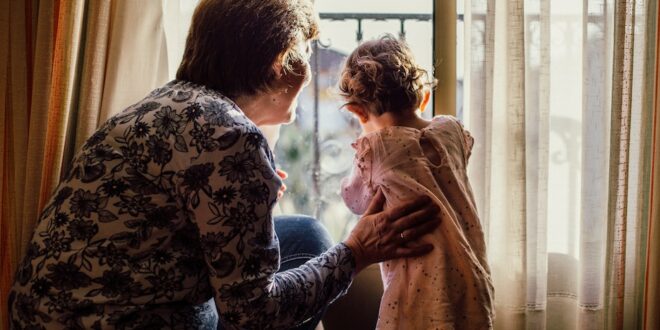The Families Commission released a report on the role of grandparents in New Zealand society. Not surprisingly, the report concluded the role grandparents played in families; regardless of race, culture or ethnicity differences, was huge.
Grandparents are important in their grandchildren’s lives. There were some interesting statistics in the report. Over 57% of those surveyed saw a grandchild at least once a week. For grandparents under 55 years of age, about 41% looked after grandchildren on a regular basis. Many grandparents admitted directly or indirectly helping their grandchildren financially, even to the extent of sometimes stretching their own finances, and 48% said they sometimes put their own interests and needs on hold to look after grandchildren. Happily, 95% of those surveyed said looking after their grandchildren was enjoyable. Generally Kiwi grandparents can pat themselves on the back for their selfless generosity to their offspring.
Most of the above statistics refer to informal and mutually agreed family arrangements. Unfortunately, not all grandparent/grandchild interaction work out that well. There are around 10,000 New Zealand children living with family members (mainly grandparents) who are not their birth parents. The major cause of children not living with their own parents is drug and alcohol problems affecting the parents.
Sometimes children end up living with their grandparents on an informal basis when their parents are unable to care for them. This sometimes creates problems, for example, a grandparent caring for a grandchild full time, but under an informal arrangement, may suddenly find they cannot access a child’s medical or educational records. Their ‘de facto’ parenting role may not be legally recognised.
There is very little legislation giving grandparents clear and defined legal rights in relation to grandchildren, but there are indirect ways to get recognition and help.
Grandparents are likely to end up as the principal caregivers in two situations:
Grandparents who are concerned for the welfare of a grandchild might decide to apply for a parenting or guardianship order themselves. Under the Care of Children Act 2004 there is nothing that specifically says a grandparent has any special rights, but the law does permit ‘any person with the consent of the Court’ to make an application. In practice, if there is an issue regarding the welfare of children, the Court will readily grant consent for anyone they consider appropriate to become involved. Grandparents often end up with a parenting order in their favour, or perhaps they might be appointed as an additional guardian to provide supplementary oversight and safety for young children. In previous years about 15% of all applications to the Family Court for parenting orders, were made by grandparents.
Alternatively, children may come to the attention of child welfare authorities when allegations are made that children are in need of care and protection. This can arise out of neglect or abuse. There is nothing to stop a concerned grandparent lodging a complaint with a social worker if they feel grandchildren are at risk, or to seek the consent of the Court to lodge an application for a formal declaration that a child is in need of care and protection. Under the Children, Young Persons and their Families Act 1989 all such allegations, if thought to have any substance, must go first to a family group conference (FGC).
Grandparents are entitled, along with other family members, to attend an FGC and to have their say about the issues and the future care arrangements for the grandchildren. It is possible for grandparents to end up as carers for the grandchildren by agreement at an FGC. If a care and protection allegation continues past an FGC to the Family Court, it is also possible a grandparent might end up looking after a grandchild by court order. If the child ends up placed under the guardianship of the Chief Executive of the Ministry of Social Development (quite a common situation), the Ministry might decide the child should be cared for on a daily basis by a grandparent, while remaining legally under the guardianship of the Ministry. Usually these sorts of arrangements are properly recorded, have legal force, and the Ministry may provide financial and other support. They are also regularly reviewed.
It can be absolutely heart wrenching for a grandparent to become involved in a bitter court action against their own child – in his or her role as a parent, but sometimes the welfare of defenceless grandchildren has to take precedence. Fortunately for New Zealand grandchildren, their grandparents will often step up in times of trouble and the Family Court will usually listen to concerned grandparents. That does not mean, however, you will always get the result you desire.
By Terry Carson
Disclaimer: This article is of a general and summarised nature only and should not be relied upon to ascertain individual rights, in any particular situation.










Join the Discussion
Type out your comment here:
You must be logged in to post a comment.